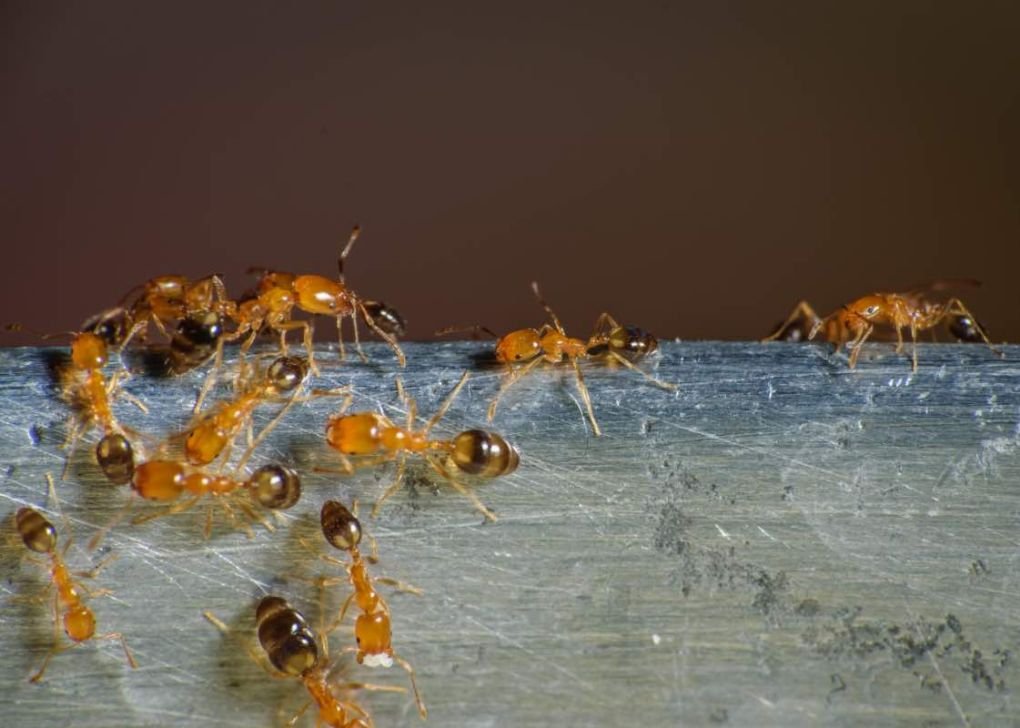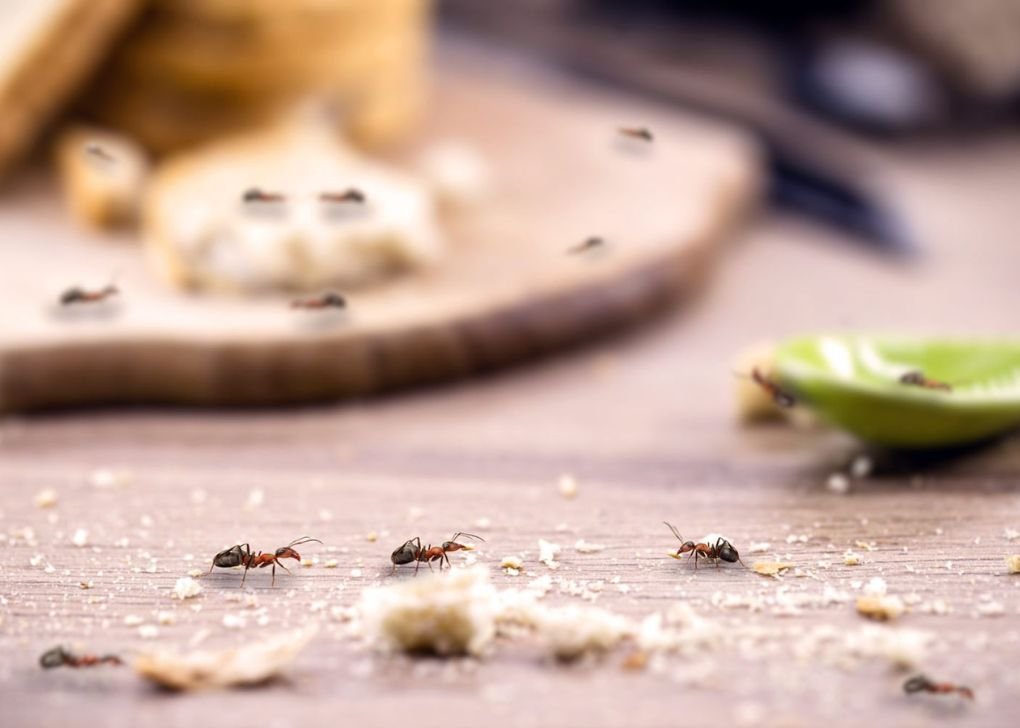Ant infestation can be a frustrating problem for any homeowner. These tiny pests can quickly invade your home, making it difficult to get rid of them. They may contaminate your food and harm your property in addition to being a nuisance. If you’re dealing with an ant infestation, it’s important to take action as soon as possible to prevent it from getting worse.
In this blog post, we’ll discuss some effective methods on how to get rid of ant infestation and keep your home ant-free. We can help with everything from professional pest control services to natural cures. A clean, ant-free house will greet you as you bid those annoying ants farewell.
How to Get Rid of Ants with Methods That Actually Work
When tackling an ant infestation, the key is to disrupt their trails and eliminate their entry points. Start by meticulously cleaning your home, paying special attention to kitchen areas where food particles are most likely to accumulate. Wipe down surfaces and vacuum regularly to remove any traces of food or sweet substances that could attract ants. Ensure that food is stored in airtight containers and that trash bins are sealed and emptied often. Identifying and sealing off entry points is also crucial.
Check for cracks and crevices around doors, windows, and the foundation of your home. Silicone caulk can be effective for sealing most gaps. Additionally, consider natural deterrents like vinegar or lemon juice. These substances can erase the scent trails ants leave behind, disorienting them and preventing them from returning. For a more targeted approach, bait stations can be highly effective.
These stations attract ants with a sugary substance and then poison them. The worker ants carry the poison back to the colony, addressing the infestation at its source. Patience is essential since it may take many days to several weeks for this procedure to completely destroy the colony. Remember, the most effective strategy combines cleanliness, physical barriers, and targeted treatments.
Also Read: How To Get Rid of Ants in The House Quickly?
Borax (sodium tetraborate)
Borax, also known as sodium tetraborate, is a powerful and versatile substance that can play a crucial role in eradicating ant infestations in your home. This white, powdery mineral acts as a slow-acting poison to ants and is a key ingredient in many homemade ant bait recipes. To use Borax effectively against ants, mix equal parts of Borax with sugar or honey to attract the ants.
This concoction creates a lethal meal for the ants, which they then transport back to their colony, inadvertently poisoning the rest of the population. For optimal results, place the Borax mixture close to identified entry points or in areas where ant activity is high. It’s important to keep this mixture out of reach of pets and children, as Borax can be harmful if ingested in significant amounts.
Additionally, while Borax is effective in killing ants, it’s vital to maintain cleanliness and remove potential food sources to prevent new ants from entering your home. Incorporating Borax into your ant control strategy can significantly reduce the ant population over time, but consistency and caution are key to its success.

Diatomaceous Earth (silicon dioxide)
Diatomaceous earth, comprised of silicon dioxide, is a natural, non-toxic powder that is lethal to ants but safe around humans and pets. This fine powder works by dehydrating ants upon contact. To combat an ant infestation with diatomaceous earth, simply sprinkle the powder around the home’s perimeter, entry points, and any trails or areas where ant activity has been observed. Ensure the powder is applied in dry conditions, as moisture reduces its effectiveness. While diatomaceous earth offers a more eco-friendly solution to ant problems, it’s important to apply it carefully to avoid inhalation, which can irritate the lungs.
Glass Cleaner and Liquid Detergent
A simple yet effective method for disrupting ant trails involves the use of glass cleaner and liquid detergent. This combination interferes with the pheromone trails ants rely on to navigate. Combine liquid detergent and glass cleaner in equal amounts, then mist the mixture directly over ant trails and entryways. After spraying, wipe the areas to remove ants and their trail markings. Regular application can deter ants from returning, but ensure to use this method with caution around food preparation areas and rinse surfaces thoroughly after treatment.
Also Read: How To Get Rid of Sugar Ants in Florida?
Ground Black or Red Pepper
Ground black or red pepper can be an effective and natural way to deter ants from entering your home. Ants are repelled by the strong smell of pepper, making it an excellent deterrent. Simply sprinkle ground pepper around entry points, near windowsills, and along baseboards where ants are prone to entering. Although this method may not kill ants, it can effectively discourage them from crossing the pepper barrier. Reapplication may be necessary after cleaning or if the pepper gets blown away to ensure continuous protection.
Peppermint
Peppermint is not only refreshing but also an excellent ant deterrent. Because of its powerful aroma, ants are effectively confused by masking the pheromone trails they follow to navigate. Soak cotton balls in peppermint oil and scatter them about ant activity areas or possible entry points to utilize peppermint as an ant repellant. Alternatively, a diluted solution of water and peppermint oil can be sprayed directly on ant trails and around the perimeter of your home. Regular reapplication will enhance its effectiveness, keeping ants at bay without the use of harsh chemicals.

Tea Tree Oil
Tea tree oil, renowned for its potent antifungal and antiseptic properties, is also an effective ant repellent. To deter ants, mix a few drops of tea tree oil with water in a spray bottle and apply the solution to ant trails, entry points, and other areas where ants are frequently observed. For stronger results, you can place a few drops of pure tea tree oil on cotton balls and position them in locations prone to ant infestations. This natural method offers a chemical-free alternative to keeping ants away, but it’s important to use tea tree oil sparingly, as its strong scent can be overwhelming.
Also Read: How to Get Rid of Scorpions in Your Home?
How To Stop Kitchen Ants?
To effectively halt kitchen ants in their tracks, maintain a scrupulous level of cleanliness. Immediately wipe up spills, especially sugary substances, and ensure dishes are washed promptly after use. Ripe fruit should be refrigerated and food should be stored in sealed containers. Regularly empty and clean trash bins, and use a vinegar-water solution to wipe down countertops and cabinets. This not only cleans but also helps to disrupt any lingering scent trails. Additionally, placing bay leaves in cupboards or drawers can serve as a natural deterrent, leveraging the aversion ants have to certain herbs and spices.
Conclusion
Tackling an ant infestation requires a multifaceted approach, combining cleanliness, natural deterrents, and targeted treatments. By implementing the methods discussed, from utilizing Borax and diatomaceous earth to employing essential oils and maintaining kitchen hygiene, you can effectively rid your home of these pesky invaders. Remember, consistency and vigilance are key to preventing future infestations. With patience and perseverance, your home can remain an ant-free zone, ensuring a peaceful and healthy living environment for you and your family.
